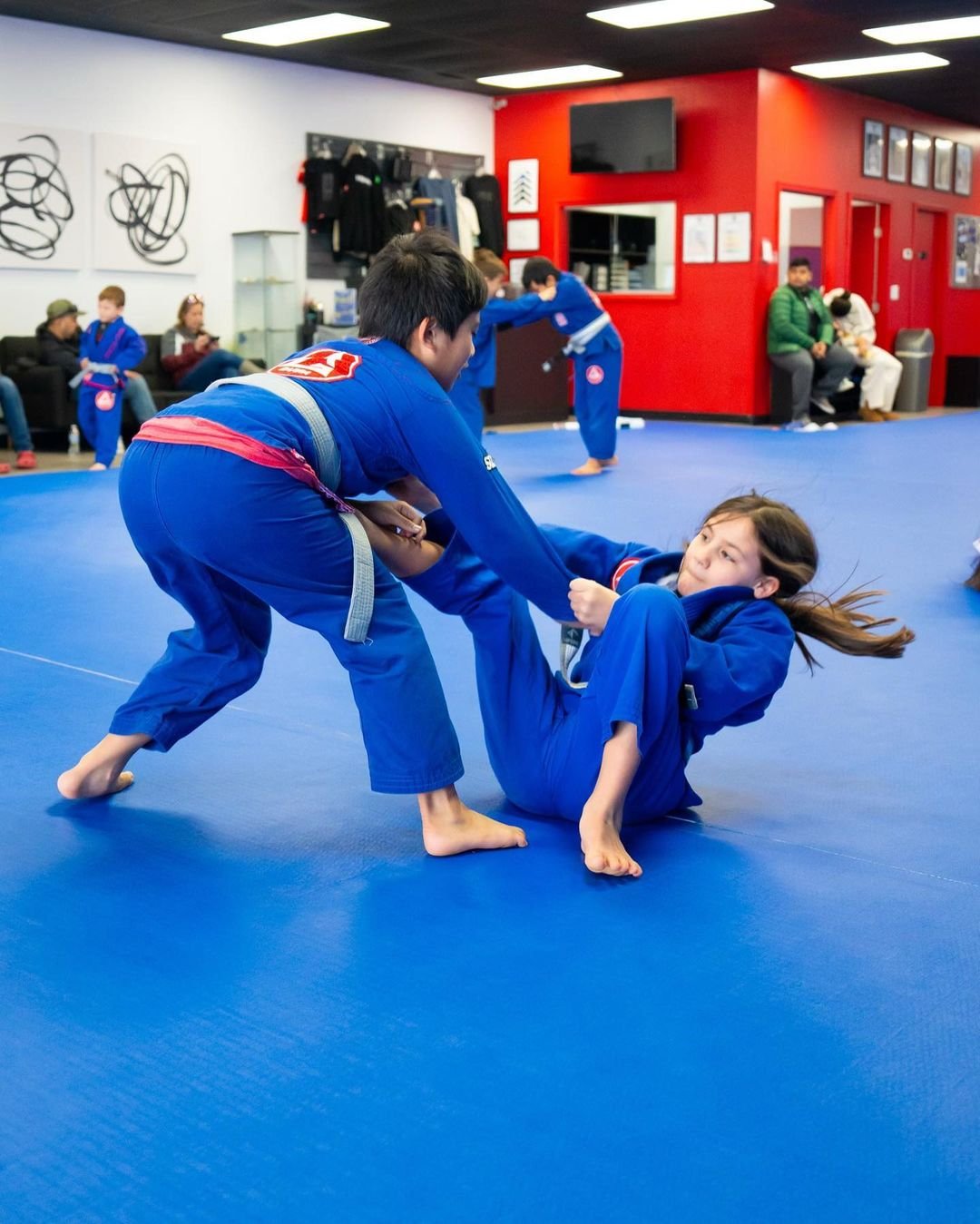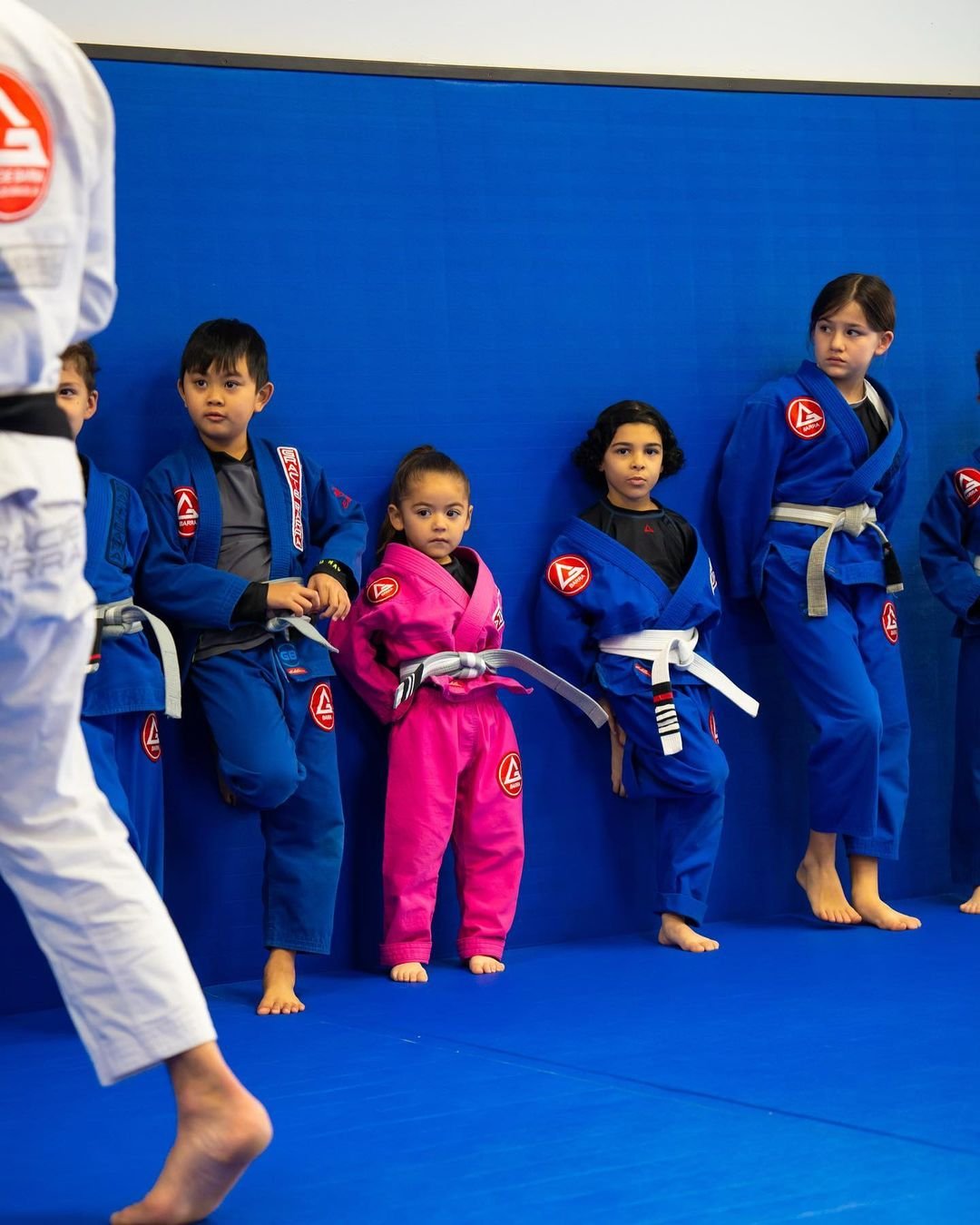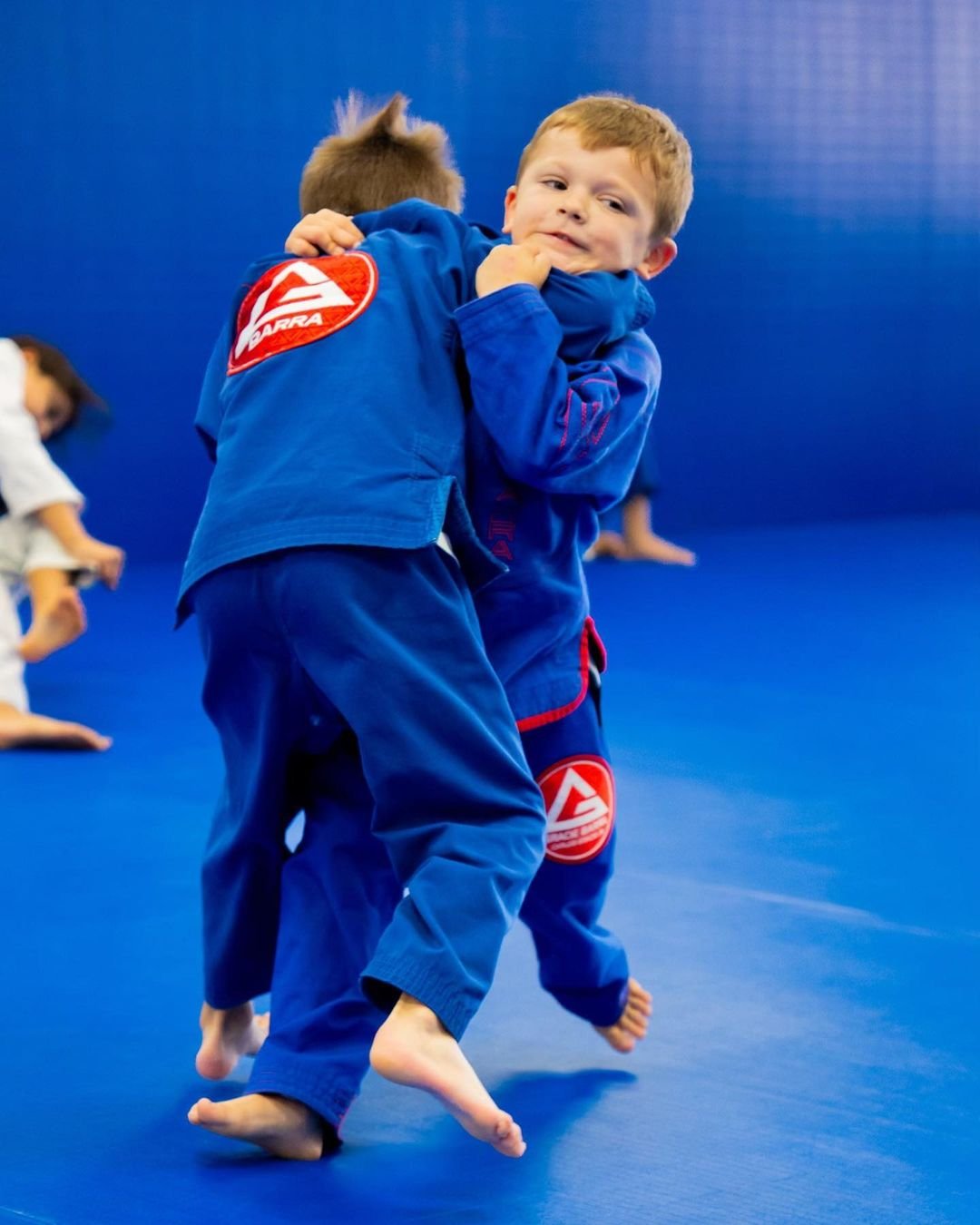Introducing:
In the complex landscape of childhood challenges, bullying stands out as a significant issue affecting emotions and the school environment. However, Brazilian Jiu-Jitsu emerges as a formidable solution in preventing bullying. This martial art not only empowers children but also cultivates their confidence and fosters a deep sense of respect. As a result, it equips them with the tools to navigate the complexities of social interactions and stand resilient against bullying behaviors.

Development of Self-Confidence:
Brazilian Jiu-Jitsu, with its personal defense techniques, fortifies children’s self-confidence. Consequently, as they acquire skills for self-protection, practitioners feel more secure. This reduces vulnerability to bullying.
Promotion of Respect and Empathy:
Within the culture of Brazilian Jiu-Jitsu, respect among practitioners is paramount. By internalizing these values, children grasp the significance of mutual respect and empathy. This, in turn, fosters an environment less prone to bullying.
Development of Resilience:
Integral to Brazilian Jiu-Jitsu is the notion that challenges breed growth. Children confront adversities in training, fostering mental resilience that extends to bullying situations. Consequently, this equips them to face difficulties with courage and determination.
Strengthening Social Skills:
Engagement in Brazilian Jiu-Jitsu ensures continual social interaction. Children learn teamwork, hierarchy respect, and friendship cultivation. These experiences refine vital social skills, thereby preventing isolation and hostility—common elements in bullying scenarios.
Empowerment through Self-Defense:
Through Brazilian Jiu-Jitsu, children gain empowerment via self-defense techniques. Armed with tangible skills to handle bullying, this physical empowerment deters potential aggressors. As a result, it fosters a safer environment within schools and communities.
Encouragement of Constructive Dialogue:
Brazilian Jiu-Jitsu’s philosophy promotes peaceful conflict resolution. Children learn to express concerns constructively, fostering dialogue and avoiding harmful confrontations. These skills are critical in preventing bullying situations and promoting a culture of respect and understanding.

Culture of Inclusion and Diversity:
The inclusive environment of Brazilian Jiu-Jitsu embraces diversity among practitioners. Consequently, this fosters a culture of acceptance, reducing stigmas and prejudices. As a result, it discourages bullying behaviors based on perceived differences.
Prevention through Education and Awareness:
Implementing Brazilian Jiu-Jitsu in schools effectively educates children about the impacts of bullying. Through regular practice, it generates awareness, aiding in preventing aggressive behaviors. Ultimately, it promotes a safer school environment for all.
Development of Emotional Control:
Through challenging training sessions, Brazilian Jiu-Jitsu provides a conducive environment for emotional control development. Consequently, children learn to handle pressure and frustration. These are crucial skills to avoid impulsive reactions associated with bullying conflicts.
Strengthening the Sense of Community:
Jiu-Jitsu practice fosters a united community among practitioners. This sense of belonging is crucial in bullying prevention, as children feel supported and connected. Consequently, it reduces the risk of isolation and victimization.
Encouragement of Personal Responsibility:
Progressing through belt ranks and taking on responsibilities within the training environment, children develop personal responsibility. Consequently, this mindset extends to everyday situations. It encourages ethical actions to prevent harmful practices.
Development of Situational Awareness:
Jiu-Jitsu enhances children’s situational awareness, teaching them to perceive and understand their surroundings. Consequently, this cognitive development is valuable in bullying prevention. It enables them to identify aggressive behaviors and avoid risky situations.
Nurturing of Communication Skills:
Brazilian Jiu-Jitsu requires effective communication during training and matches. Consequently, children learn to express themselves clearly and assertively. This skillset is beneficial in resolving conflicts peacefully and preventing misunderstandings that can lead to bullying.
Fostering of Empathy and Understanding:
Through sparring and partnering with diverse individuals, children develop empathy and understanding. Consequently, they learn to respect others’ perspectives and differences. This fosters a compassionate environment, reducing instances of bullying.
Cultivation of Leadership Qualities:
As children progress in their Jiu-Jitsu journey, they often become role models for newer practitioners. Consequently, they learn to lead by example, promoting positive behaviors and attitudes. This leadership development contributes to a healthier and more respectful training environment, extending to school and community settings.

In Short:
Brazilian Jiu-Jitsu remains a multifaceted tool in preventing bullying. Alongside bolstering self-confidence and promoting respect, aspects like emotional control, community bonding, personal responsibility, and situational awareness are vital. These shape resilient children, fostering a positive, bully-resistant school environment.

